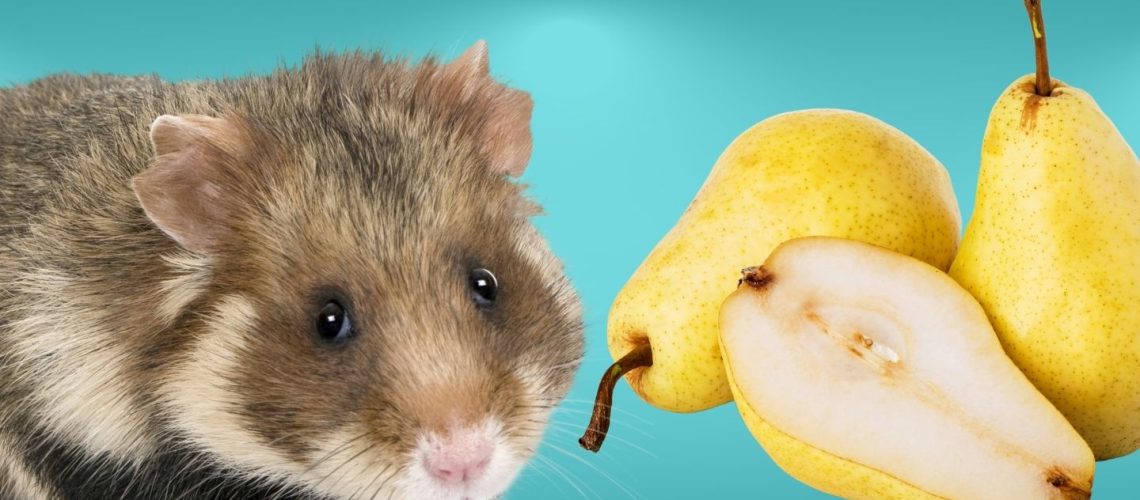The short answer is yes, hamsters can eat pears. However, it's important to make sure that the pear is served to your hamster in moderation and as a treat, rather than a staple of their diet. Pears are rich in vitamins and minerals, but they also contain natural sugars that can lead to weight gain if consumed in excess. In this article, we will explore the nutritional benefits of pears for hamsters, potential risks, serving recommendations, and other fruits and vegetables that are safe for hamsters.
Health Benefits of Pears for Hamsters
Vitamin C and Hamster Health
Pears are a good source of vitamin C, an essential nutrient for hamsters. Vitamin C supports a healthy immune system and helps prevent scurvy, a condition that can occur in hamsters if they don't get enough of this vitamin.
Potassium and Muscle Function in Hamsters
Potassium is another essential mineral found in pears. This nutrient is vital for maintaining proper muscle function and nerve transmission in hamsters.
Potential Risks of Feeding Pears to Hamsters
Sugar Content and Weight Gain
While pears can be a tasty and nutritious treat for hamsters, they should be given in moderation due to their sugar content. Consuming too much sugar can lead to weight gain in hamsters, which can result in various health issues.
Choking Hazards: Seeds, Stems, and Peels
Hamsters have small throats, which can make it difficult for them to swallow large pieces of fruit. When giving pears to your hamster, it's important to remove the seeds and stem, as these can be a choking hazard.
How to Prepare Pears for Your Hamster
Washing and Cutting the Pear
Before serving pears to your hamster, wash the fruit thoroughly to remove any dirt or pesticides. Cut the pear into small, bite-sized pieces that are easy for your hamster to eat.
Removing Seeds, Stems, and Peels
Always remove the seeds and stem from the pear before giving it to your hamster. While it's not necessary to peel the pear, doing so can make it easier for your hamster to eat.
Serving Size and Frequency Recommendations
Offer your hamster small pieces of pear occasionally as a treat. This will help prevent excessive sugar consumption and ensure that your hamster maintains a balanced diet.
Other Fruits and Vegetables Hamsters Can Eat
Safe Fruit Options for Hamsters
In addition to pears, other safe fruit options for hamsters include:
- Apples (without seeds)
- Blueberries
- Raspberries
- Strawberries
- Banana (in small amounts)
Safe Vegetable Options for Hamsters
Hamsters can also enjoy a variety of vegetables, such as:
- Cucumbers
- Carrots
- Broccoli
- Peas
- Spinach (in moderation)
Fruits and Vegetables to Avoid
Dangerous Fruits and Vegetables for Hamsters
Some fruits and vegetables should be avoided, as they can be harmful to hamsters. These include:
- Citrus fruits (e.g., oranges, lemons, limes)
- Onions
- Garlic
- Avocado
The Importance of a Balanced Diet
A balanced diet is crucial for your hamster's overall health. Ensure that they are getting a variety of fruits, vegetables, and their regular hamster food.
Monitoring Your Hamster's Health and Diet
Signs of a Healthy Hamster
Keep an eye on your hamster's appearance and behavior. A healthy hamster should have bright eyes, a shiny coat, and be active and alert.
Adjusting Your Hamster's Diet as Needed
If you notice any changes in your hamster's health, consider adjusting their diet and consult your veterinarian for advice.
Final Thoughts: Can Hamsters Eat Pears?
In conclusion, pears can be a healthy treat for hamsters when given in moderation. Remember to remove the seeds and stem and cut the pear into small, bite-sized pieces. Provide a balanced diet for your hamster, including a variety of safe fruits and vegetables.
Remember the importance of moderation and a balanced diet for your hamster's overall health and happiness.











